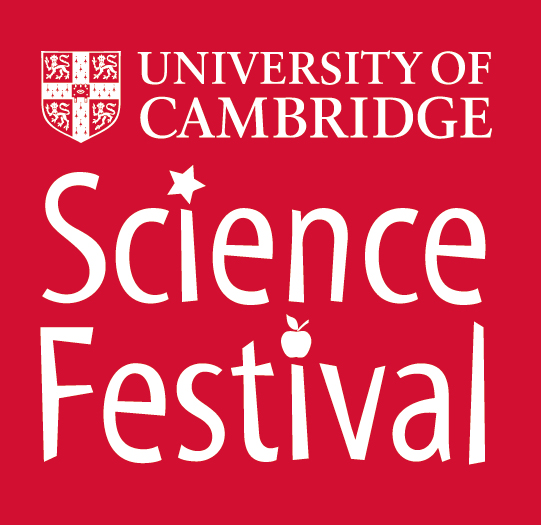
The Cambridge Science Festival runs from 12th - 25th March 2012 and features more than 180 events organised by departments within the University of Cambridge. This year the Festival has a special focus on celebrating the 2012 Olympic and Paralympic Games. Find the full programme online - we've also highlighted some sports-focused events for you below.
A mathematical look at the Olympics
Monday 12 March 6:00PM - 7:00PM
To prepare competitors and spectators for London 2012, Professor John Barrow casts a mathematical eye over a wide range of Olympic sporting events. A little elementary maths can help us appreciate what is going on in a range of running, swimming, jumping, throwing, paddling, lifting, swinging and wheelchair racing events. We will also examine some of the strange scoring systems that sports employ.
Ages: 14+
Event type: Talk. Free. No need to book, but arrive on time.
Venue: Mill Lane Lecture Rooms, 8 Mill Lane, Cambridge CB2 1RW [map]
Have you got what it takes to be an Olympian?
Saturday 17 March 10:00AM - 4:00PM
Test your sporting abilities in a range of Olympic events. Have a go and compare your scores to athletes in the Olympic and Paralympic Games. Find out more here.
Ages: 10+
Event type: Hands-on. Free. No need to book - drop in throughout the afternoon.
Venue: Guildhall, Market Square, Cambridge, CB2 3QJ [map]
Designer athletes: fair play or foul?
Tuesday 20 March 8:00PM - 9:00PM
The Physiological Society invites you to discuss this controversial question and the science behind it with Steve Ingham, English Institute of Sport; Steve Haake, Sheffield Hallam University; and other panellists from the world of sports. What shape do you think our future sporting champions should be in?
All ages.
Event type: Talk and panel discussion. Free but pre-booking essential: book online or email lcrane@physoc.org.
Venue: Mill Lane Lecture Rooms, 8 Mill Lane, Cambridge CB2 1RW [map]
The final push: Preparing an athlete for an Olympic or Para-Olympic Games
Wednesday 21 March 7:30PM - 8:30PM
Dan Gordon, Paralympian and Principal Lecturer of Exercise Physiology at Anglia Ruskin University, explores the preparation strategies that are employed by athletes in the final few months leading up to an Olympic and Para-Olympic Games in order to optimise performance. The talk will consider physiological and psychological athlete preparation and the role of the so called 'Secret Squirrels'.
Ages: 14+
Event type: Talk. Free. No need to book, but arrive on time.
Venue: Anglia Ruskin University, East Road, Cambridge CB1 1PT [map]
Science of Sport - school parties only
Thursday 22nd or Friday 23rd March, various times
Come and test your strength, fitness and agility using these fun, interactive challenges organised by the University of Cambridge's Community Sport programme. Who’s the most coordinated in your class? Have you got quicker reaction times than your teacher? Other activities include Batak Wall, target practice, vertical jumps and a speed test. Find out more here: Thursday and Friday.
Ages: 8-13. Please note this event is for pre-booked school parties only.
Event type: School groups book a session time in advance. Maximum number of children per session is 40. Hands on sessions. Find information on how to book here.
Indoor Cricket School, PE Centre, Fenner's, Gresham Road, Cambridge CB1 2ES [map]
Saturday 24 March 12:00 Noon - 4:00PM
Explore some of the maths hidden in the Olympic and Paralympic Games! Challenge yourself to complete the Maths of Sport Pentathlon, a series of hands-on mathematical activities (based on our Maths of Sport resources!) and displays focusing on Olympic and Paralympic sports and infrastructure. Plus a huge range of other hands-on maths activities - something for all ages from 5 upwards!
Ages: 12+
Event type: Hands-on. Free. No need to book - drop in throughout the afternoon.
Venue: Centre for Mathematical Sciences, Clarkson Road, Cambridge CB3 0WA [map]
How Fast Can Usain Bolt Run?
Saturday 24 March 12:30PM - 1:30PM
How could Usain Bolt improve his world 100 metres sprint record significantly without improving his speed? How fast should he be able to run? Professor John Barrow FRS answers these and other questions in this talk, which also looks at the mechanics of sprinting and the effects of wind assistance, timing accuracy and altitude on sprint times.
Ages: 15+
Event type: Talk. Free. No need to book, but arrive on time.
Venue: Centre for Mathematical Sciences, Clarkson Road, Cambridge CB3 0WA [map]
Making gold: Computer science and technology at the Olympics
Saturday 24 March 2:00PM - 3:00PM
Over a century after it began, the Olympic Games have been transformed by technology. No longer do we rely on crumpled measuring tapes or mechanical stopwatches. Now we detect false starts that the eye can’t see, split gold and silver by a millisecond, and measure distances within a millimetre. Dr Robert Harle explores the wonder of these systems that will decide who takes gold and who goes home empty-handed in London this year.
Ages: 10+
Event type: Talk. Free. No need to book, but arrive on time.
Venue: Computer Laboratory, William Gates Building, JJ Thomson Avenue, Cambridge CB3 0FD [map]

